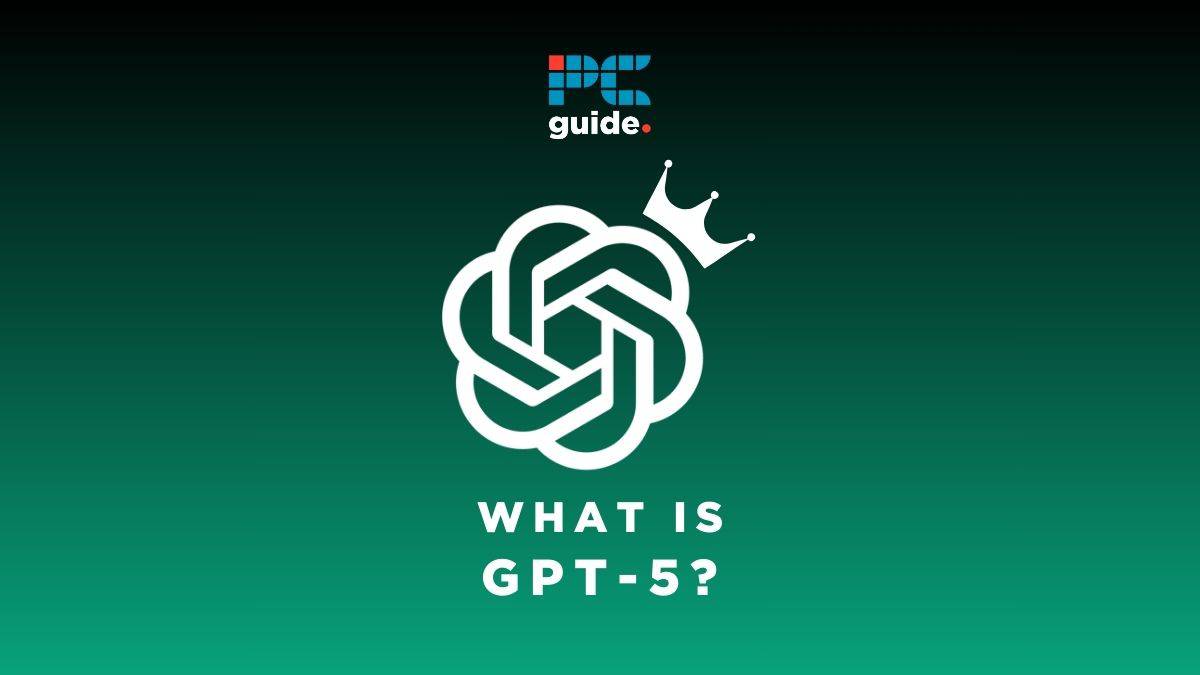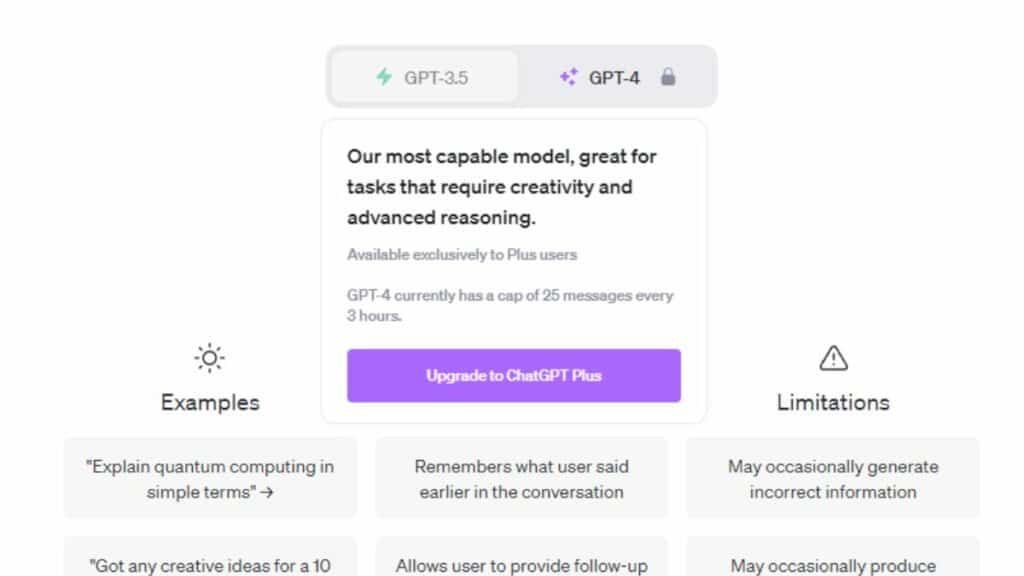What is GPT-5?

Table of Contents
GPT-4, the tech behind the worlds favourite AI chatbot, ChatGPT, is still the most powerful foundation model on earth. But in the world of big tech, enough is never enough. GPT-5 is confirmed to follow GPT-4. But what is GPT-5? What will GPT-5 be capable of? This next LLM (Large Language Model) will surpass existing competition from Microsoft Bing Chat and Google Bard. We investigate (and speculate) just what that entails.
Will there be GPT 5?
Yes, there will be a GPT-5. On June 7th 2023, Altman admitted to the Economic Times that “We have a lot of work to do before GPT 5. It takes a lot of time for it. We are not certainly close to it,” adding that it is unclear even to himself what “the timeline of the next GPT” will be. Since that statement, it’s become clearer that we can expect GPT-5 to begin roll out in 2025, with a possible release date confirmation in December 2023.
Prime Day may have closed its doors, but that hasn't stopped great deals from landing on the web's biggest online retailer. Here are all the best last chance savings from this year's Prime event.
- Sapphire Pulse AMD Radeon™ RX 9070 XT Was $779 Now $719
- AMD Ryzen 7 7800X3D Processor Was $449 Now $341
- Skytech King 95 Ryzen 7 9800X3D gaming PC Was $2,899 Now $2,599
- LG 77-Inch Class OLED C5 TV Was $3,696 Now $2,996
- AOC Laptop Computer 16GB RAM 512GB SSD Was $360.99 Now $306.84
- Lexar 2TB NM1090 w/HeatSink SSD Was $281.97 Now $214.98
- Apple Watch Series 10 GPS+ Smartwatch Was $499.99 Now $379.99
- AMD Ryzen 9 5950X processor Was $3199.99 Now $279.99
- Garmin vívoactive 5 Smartwatch Was $299.99 Now $190
*Prices and savings subject to change. Click through to get the current prices.
What is GPT-5?
The release of GPT-5 will represent the best of all AI models we’ve seen to date. GPT-5 is the culmination of (what will be on gpt-5's release date) over 8 years of research and development since OpenAI was founded in on December 11th 2015.
More powerful than previous models in more ways than one, GPT-5 will combine greater multimodal capabilities, with greater contextual understanding from improved long-term memory. It will push the boundaries once more on the frontier of AI data infrastructure. Where most competitors have tens or even hundreds of billions of parameters, GPT-4 boasts one trillion. This network of parameters, when likened to synapses between neurons in our own neural network we call “the brain”, become understandably exciting.
Following the confirmation that GPT-5 is on the way (eventually), we can then ask “How powerful will GPT-5 be?”. One clear way to tell what OpenAI is focusing on is to take a look at the GPT-5 trademark filing itself – which covers every aspect of NLP (Natural Language Processing).
Essential AI Tools
What’s included in the GPT-5 trademark application?
Following the filing of a trademark application with USPTO (the US Patent and Trademark Office), it’s clear that OpenAI CEO Sam Altman is preparing for the GPT-4 successor. Since then, the AI research firm has also patented GPT-6 and GPT-7, as of October 20th, 2023.
Paraphrased from the USPTO report, we’re talking about “artificial production of human speech and text”, NLP “generation, understanding and analysis” and any other way you could phrase the processing of machine-learning based language or text or audio. The filing is soberly specific about the inclusion of “translation of text or speech from one language to another”, “sharing datasets for the purpose of machine learning”, as well as “predictive analytics, and building language models”, the “conversion of audio data files into text”, “voice and speech recognition”, along with “creating and generating text”, in addition to “developing, running and analyzing algorithms that are able to learn to analyze, classify, and take actions in response to exposure to data” and lastly the development and implementation of “artificial neural networks”.
As such, we can expect GPT-5 to be superior to GPT-4 in all of these categories.

What will GPT-5 be able to do?
What capabilities will GPT-5 have? The new features coming to GPT-5 will no doubt include the multimodality we see today in competitors such as Microsoft Bing Chat and Google Bard. The definition of “multimodal” here is that the AI is literate in multiple types of data, therefore has the ability to receive, respond with, and translate between different forms of digital media – namely text, audio, image, and video. You will be able to input any of these mediums and it will output any of them too! This is, to be frank, speculation. However, this is an essential minimum requirement of GPT-5 to remain competitive in todays AI space, and it’s hard to imagine OpenAI isn’t keenly aware of that.
“Until we go train that model, it's like a fun guessing game for us… I can't tell you here's exactly what it's going to do that GPT-4 didn't.”
Sam Altman, OpenAI CEO
GPT-5 will quickly be adopted by third parties in the way many current AI apps and services tout “Powered by GPT-4”. The name of the LLM itself has become something of a badge of honour, a triumph of marketing from OpenAI. This scale of B2B adoption based on consumer trust of a technology rivals that of Google in the early 2000’s.
Will GPT-5 be AGI?
No, OpenAI’s GPT-5 will not be AGI (Artificial General Intelligence). It will be the most powerful LLM that has ever existed, objectively quantified by parameters, but AGI is a significant leap above that. However, the OpenAI chief remains optimistic.
“The vision is to make AGI, figure out how to make it safe… and figure out the benefits.”
Sam Altman, OpenAI CEO
AGI will be able to do any intellect-based task that we can do. Moreso, it will do it faster, with higher accuracy, more consistency, less downtime, and near-instant access to the collective scientific and artistic literature of humankind. Or at least that’s the definition fit for a Hollywood blockbuster. Sam Altman, CEO of OpenAI prescribes a less propane-fueled definition. He says succinctly that his “mission is to ensure that artificial general intelligence—AI systems that are generally smarter than humans—benefits all of humanity.”
Perhaps in an effort to underpromise and overdeliver, Altman calmly stated that “GPT-5 will be ok“, relative to the previous generations of GPT. It might even change the world less than enthusiasts expect.
This is still an incredible feat, in a very philosophical sense. That of an intelligence to create an intelligence more intelligent than itself. The implications of this cannot be understated. If this is conceptually possible, then it logically follows that the intelligence we create, already smarter than ourselves, will be able to create an intelligence smarter than itself. This is the point known as AI singularity – where the growth (in power and distribution) of AI becomes untameable and irreversible. At such a point, we had better be very confident that what we have created has goals and objectives aligned with our own. This is called the alignment problem, which I’d love to go into more detail about, but really it deserves its own article.

